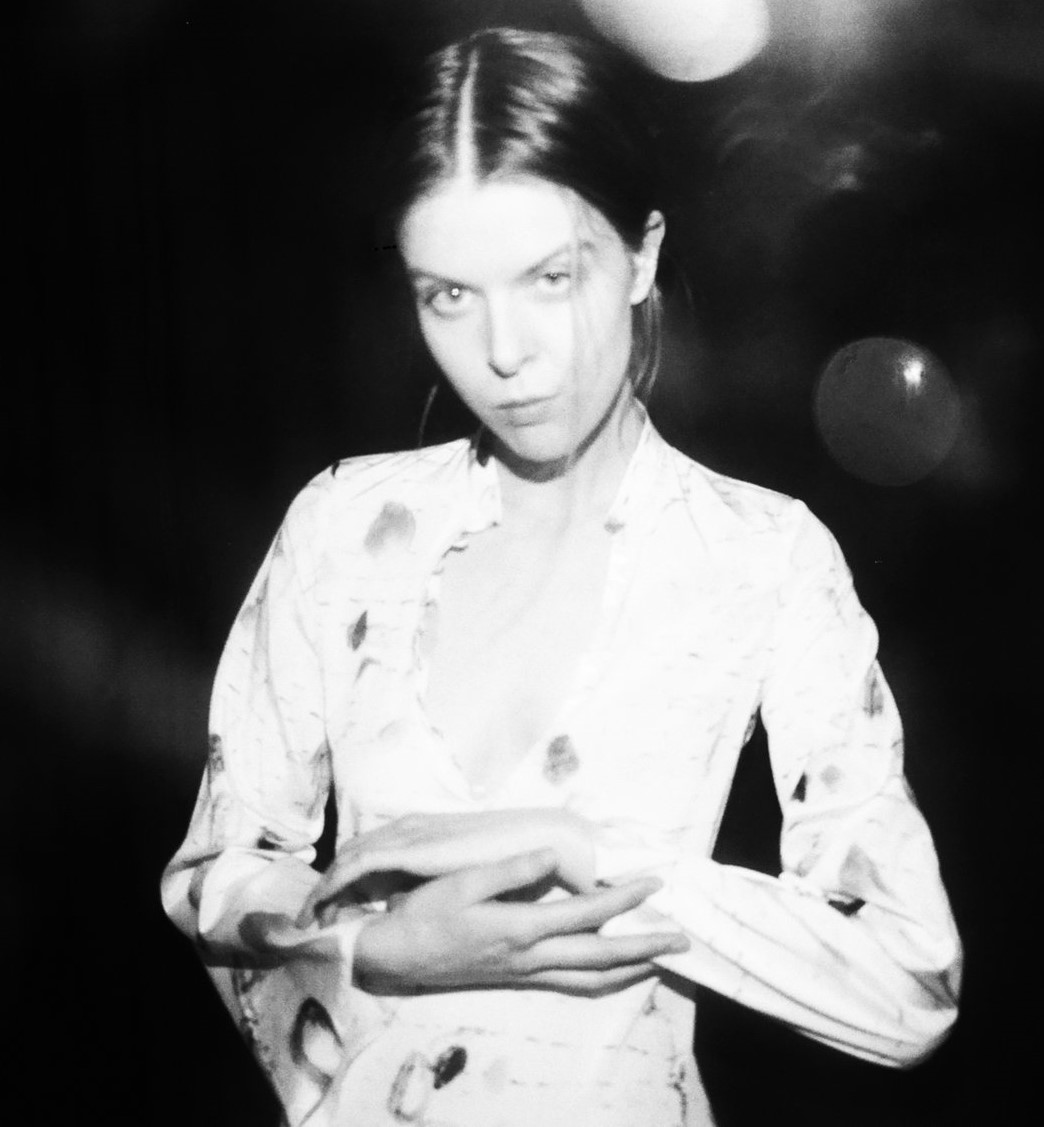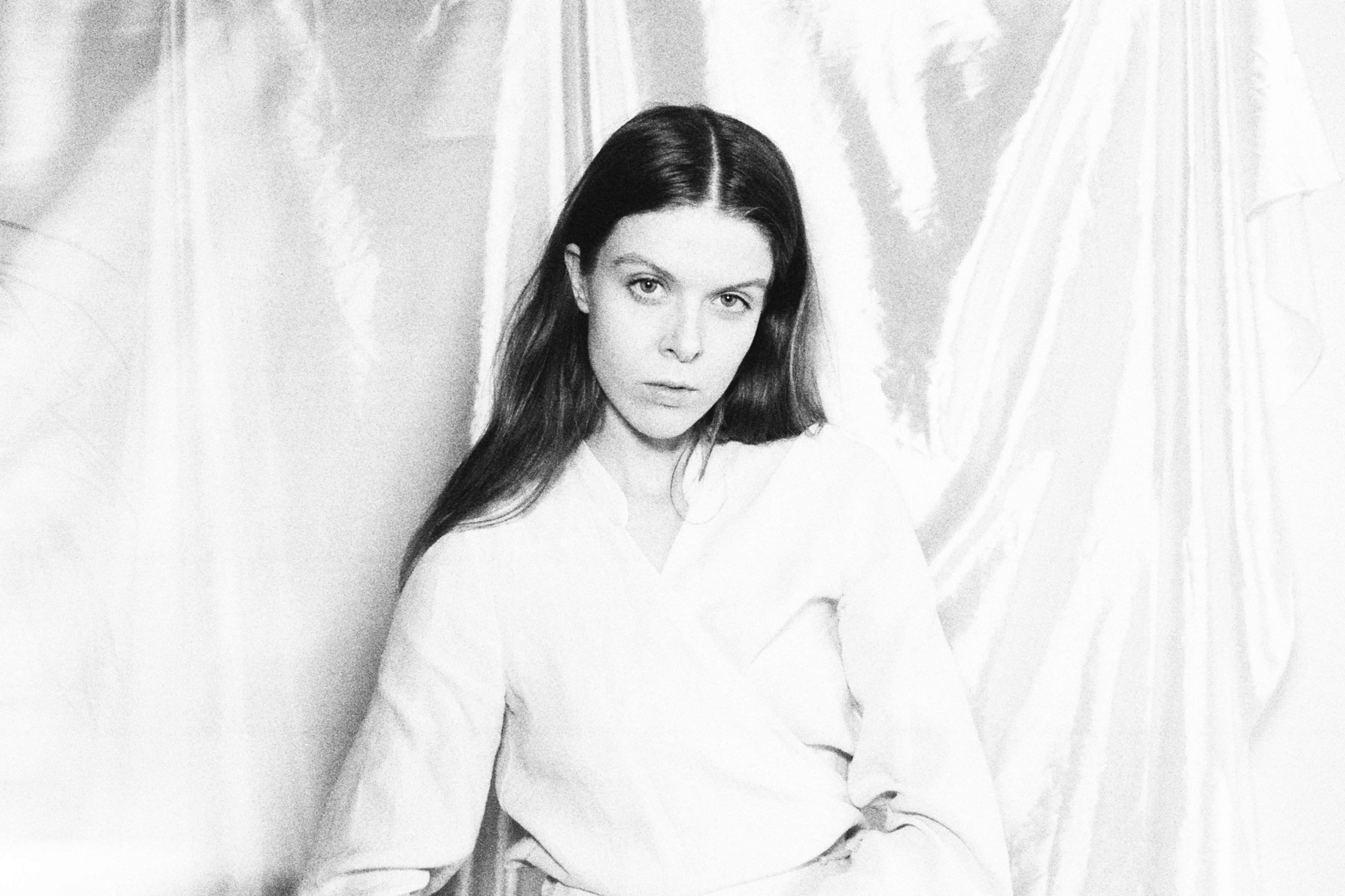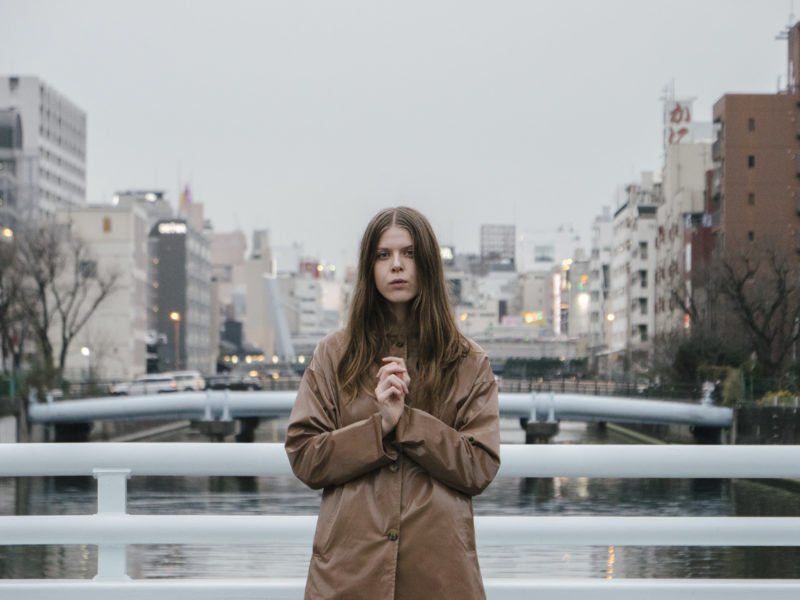It wouldn’t be an exaggeration to say that the last ten years of adventurous music to emerge from Iceland have been shaped by Jófríður Ákadóttir. 2010 saw her debut with Pascal Pinon, the band she shares with twin Ásthildur, and through the course of a decade’s winding she picked up the reins with Samaris, Gangly and guested on other projects. But the last few years have seen her focus on her solo project, JFDR, which saw light in 2017 with the album Brazil. And as a new decade dawns she’s returned with the follow-up, New Dreams.
Unlike its predecessor, New Dreams had a difficult birth. Ákadóttir found herself rootless over the period of the album’s creation, both in terms of her life, and to some extent musically. Brazil had been written as she moved to New York – New Dreams came as she left. “A few of the songs that made it onto this album were written as far back as 2016, right after Brazil was finished”, she says. “It was a very transient time. I didn’t have my anchor in any one place, even though I was kind of trying and half-pretending to be living in New York. It was all very scattered and all over the place. It was a process from the end of Brazil being finished up until the end of 2017, when I realised how the album was going to be made. Up until that point I was very much searching for the right path, and the right process. Brazil came very naturally and effortlessly; I didn’t have to think about it at all. One thing led to another and then all of a sudden there was an album. A big part of that was Shahzad [Ismaily] who produced it. He took it upon himself to be that producer, and to organise everything and to make sure we were still meeting up and finding times in our schedules to do things. I owe him a lot. But when we were talking about doing a second album, he immediately recognised that it’s impossible to repeat the same process. I got really scared when he said that, and was like ‘yeah, but we can still try!’. [Laughs]. It was kind of like he knew he wasn’t going to make the second album with me in the same way, but I didn’t know it. I just kept hitting that block”.

Photo: Saga Sig
Written without the familiar help of Ismaily, on the road and moving between New York and Iceland, the new album was already coming together on shaky foundations. The strain was increased by the pressure she was putting on herself. “Brazil was fluid, kind of effortless, a bit careless, a bit reckless. Just doing whatever, learning, having a sort of beginner’s mindset. Then I went into the writing of New Dreams with a ‘now I know how to do this’ sort of fake confidence. [..] I don’t know where it came from, but I think it came from me thinking that with this album, I needed to prove something to myself and the world. But I also knew I couldn’t do that. I knew that I mentally didn’t have the capacity to that. With this album, that making of it was incredibly focused, once I figured out the method and the process. But once it was finished, I didn’t have anything in me anymore to match up to that. So once it was finished, I didn’t have the same energy to do something. It was a really weird transition in my life. I had stopped working more or less with all the other bands I was working with. I had moved away from New York and moved back to Iceland, and I was in a really strange place with working in general, and what it meant to work and what my job was about, and that was what I found really toxic. Too much thinking things over and not being able to find balance. There were a lot of thoughts, and it’s hard to put it into one linear description of the situation. It was an interesting time, and that was definitely why the album didn’t come out in 2018 as it probably could have done. It was a time of change and transition, and often at those times you need to step a bit back, and be a bit more internal, and realise what you need to leave behind and what you need to take with you into the next chapter”.
In the end, the whole process led to renewal, in the sense that she discovered a new way of working, and an acceptance of the responsibility she wanted to and needed to take. “I realised that a lot of what I learned on Brazil, I couldn’t really use, because what I needed to do for this album was so different. I needed to take more space as a producer and decision-maker, I needed to be the one who said ‘this is what I want to do’. And I was so difficult for me, because I’ve always leaned on other people, and I’ve always been in bands, I had worked with Shahzad. But with this process, even though I had amazing collaborators and I was never fully alone, I was always to one to say ‘this is what we need to do’. Part of me really enjoyed that and needed to do that, and that was why it ended up being like that, but there was another part of me that really struggled with that. I see them as totally different learning processes, because the challenges were so different”.
A more practical approach
As well as a new level of self-reliance, New Dreams marks a new way of working for JFDR. Writing in motion meant the computer became Ákadóttir’s main composing tool, which meant the songs only started to come into defined forms as audio files on her laptop, rather than demos knocked into shape on instruments. “All of [Brazil] was written on acoustic instruments”, she says “and I could actually play all the songs, and I knew my way around them in an acoustic way, but I didn’t know my way around them in the digital world. I never touched the computer side of it, and it’s actually a tragic story but all the electronic files were lost. So I never touched the digital side of things, and now it doesn’t exist anymore, it’s been deleted, destroyed. With New Dreams, it started off like that. Some of the very old songs were written on instruments and I could perform them. But gradually, as I started to merge the electronic and acoustic stuff more and more and more, they became really integrated, and I actually started to write on the computer, and I would have to learn how to play them afterwards. Even some of the songs that have acoustic instruments, like Care For You or whatever, I moved them around so much in the production, moved the chords around and pitched up and down, that it started as something I could play, now it’s something I can’t even play anymore. I know how to sing it, but I don’t know how to play all the backing tracks. But at the same time, I know where everything is in the session, and every single sound has its own space, and it feels so special that I was able to be there and carve that space. And be able to sit down in front of the computer and do all the little technical bits, which I didn’t touch with Brazil. So there is a big difference for me in how I sculpt electronic music, versus how it was sculpted in Brazil”.
In the end, New Dreams owes its existence to long hours of careful, intense creating, sketching and producing in front of a screen. She says: “It’s very craft-y. There are a few levels. There are levels where you’re messing around, or just trying to tell a story or lay out a skeleton. But once you start going into the details, it’s very much a craft, you just have to sit there and spend a lot of time with it. It all comes down to putting in the hours. There isn’t much magic to it, you have to come to the office, you can’t just sit around waiting for inspiration to hit you. I think maybe with Brazil I felt there was something magical, like something else was pulling me, like I was a little puppet, and things were happening outside of my own awareness. But with New Dreams, it was all about showing up. Putting in the hours, doing the work, That’s how it happened. Much more practical. But of course there’s always magic, but it happened in the process for me”.
In a lot of ways, New Dreams is an album of captured space. A lot of the songs here are lightly-drawn, the instrumentation kept stripped-back and bare, but between the detailing live wide expanses of space and air. In places, listening feels like standing on a plain with the sky above stretching out overhead, or looking out on the ocean as it reaches past what you can see – a sort of echo of the feeling when you feel awed and small by nature. The minimal nature of the songs means that every touch carries real power, like when the strings swoop in on Juno and gild the song’s last chorus (if you want to call the free-form shapes on this record choruses). “A few people have mentioned how spacious it is”, says Ákadóttir, “and it is very minimal and I never thought about it before. I think I just gravitate to that sound naturally. I might just have a different perspective on that to most people who are used to listened to music which is quite dense. It had a lot to do with the way [mixer] Paul Corley’s suggestions, and the way he described it was that the narrative was a bit more linear, everything has its own chapter. It’s not stacked on top of each other, like a lot of music often is. When you’re writing music using audio software, you think about the channels top-down, like you’re layering a cake. So what Paul was going on about, and I remember he talked about Oneohtrix Point Never, and that more experimental electronic world, that it’s dense, but in a linear way. Every chapter, every sound has its moment. I feel like even if I wasn’t consciously thinking about that, that’s how it ended up, and I didn’t even realise that until other people mentioned it and were asking me about that. So that wasn’t a conscious choice, but I do remember having that conversation about linear narrative and linear density. When you’re in the process of making an album, it’s just intuitive, and it’s only when you start zooming out a bit you see these things. When you’re inside of it, you’re surrounded by the sounds, and you don’t really think of the whole until the end”.
As well as being more linear and less dense, New Dreams is also more free-form that her earlier work, less shaped by musical structures. That also extends to the lyrics. “With this album I feel like I was moving more towards stream of consciousness, and Taking A Part Of Me is a lot like that, just sort of writing down whatever you can think of. Gravity was a lot like that, just sort of writing down whatever came into my head, and then obviously editing it to fit into the song. My Work was like that as well, lots of thoughts that were in my brain and then you try and pinpoint what they are and stich it into the song. And to allow it to be open in structure. It didn’t have to be verse-chorus-verse-chorus-bridge-chorus, it could be more open. In a way, I feel like I put less work into the lyrics than in anything else I’ve ever done.”
“It wasn’t about trying to make it poetic, or trying to make it anything. A lot of the lyrics, I think I could have tried to make them more poetic or whatever. But in the end, it was all about letting them be what they wanted to be”.

Photo by Saga Sig
The challenges and rewards of being a solo artist
The first half of the decade (let’s say 2010 to 2016) was busy for Ákadóttir in terms of projects. There were three Pascal Pinon albums, three Samaris albums (and a half, if you count Silkidrangar’s associated follow-up Silkidrangar Sessions), a Gangly EP put together between 2015 and 2017, as well as numerous guest slots. In contrast, the last couple of years have been more stable, focused almost solely on JFDR rather than bouncing between different bands. To close the interview, the question comes up of whether that creative stability, focused only on one project, where she herself is the only moving part, has been refreshing, and has allowed her to develop it further: “I don’t know. I think the grass gets a bit greener on the other side. It’s very easy for me to say now that working with bands is great and I miss it. But I do remember being in it and thinking I wished I was on my own, because I could have done things logistically whenever I pleased and that makes things easy. I think it’s not easy to do this job at all, and I kind of realise that a little bit more as I get older, and I think a lot of people realise that. It isn’t necessarily designed to support you, and you have to be very smart and know a lot of different skills and keep a really focused mind and attitude around it. I feel like even if I was only doing bands I would have issues with that, and it never really comes down to the circumstances, it comes down to what you bring into it, and I’m really grateful for everything I’ve had in the past and I’m excited for whatever’s next. I think everything has its own challenges.”
“I do miss that sense of we’re in in together, that we stand together and fall together. When we win we celebrate together, when we lose we help each other out. When you’re alone, you don’t have that anymore, and you get the freedom of making decisions. There are a lot of benefits to it, you can move at your own pace, but you definitely sacrifice a lot of things, and I do miss that. It’s been a long time since I worked with any of my band-mates and I definitely feel like a very important part of my life was having those relationships, and I haven’t had them for a while. But you know, there’s a time and place for everything, and there are a lot of challenges that come with being a solo artist, and a lot of them yield really great results. It would be cool to make an album that is really weird and no-one likes it except for yourself. But you made it, and you did it, and you went through with it! If I find myself in that position, which I think I might be very close to with the material I’m working on now, on an artistic level and a narrative level I think that would be really interesting, if nobody likes it and it totally flunks. It would yield very interesting results, but maybe not very good ones [laughs]“.
New Dreams is out now. Find JFDR‘s rescheduled tour dates below.



